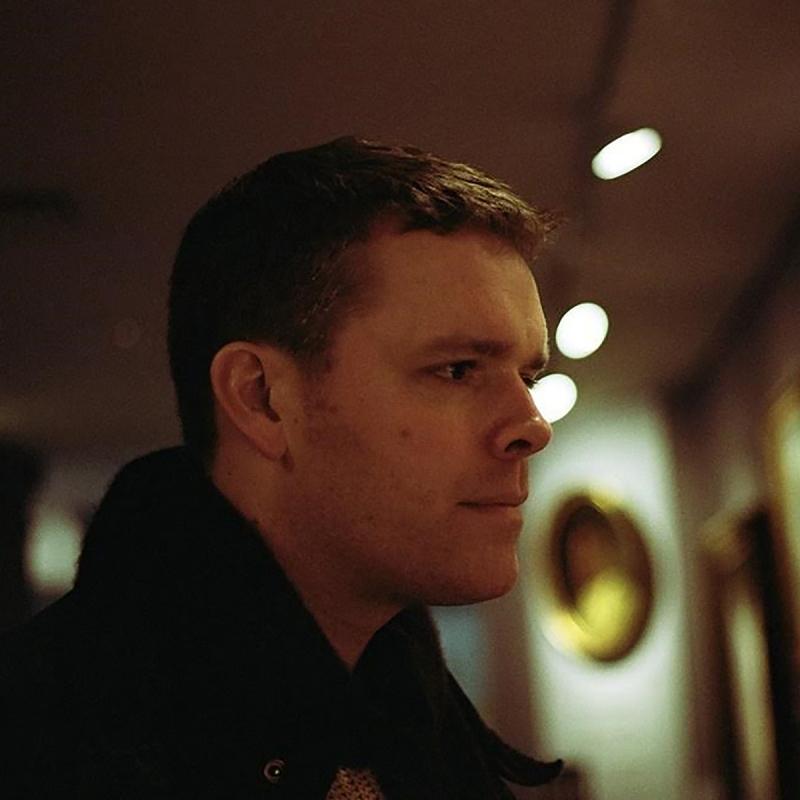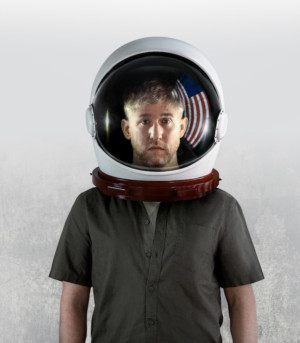Guest Blog: Playwright Al Smith On Apollo 11 and RADIO

When I was a kid, my dad used to hand my brother and me a pair of binoculars and take us out into the garden at night-time to look at the Moon. He had this stash of lunar maps that he'd brought back from America and he'd point at different bits of the Moon and show us where Apollo 11 landed, Apollo 12, Apollo 14 and so on.
I felt bad for the lunar landers they'd left on the surface. I felt they must be so terribly lonely, preserved up there forever next to their abandoned flags.
In 1965, shortly after marrying my mum, Dad got a job as a post-doc physicist at the University of Chicago. They went out there, full of beans about this first rung on the academic ladder, ready for an adventure in a new world. But after a few months of being there it transpired that the money for the research project he was meant to be working on hadn't materialised, so no sooner had he arrived, he found himself looking for work.
His boss suggested to him that the US Government were looking for physicists to work on the Moon landings. They'd harnessed Bell Labs, a legendary physics and engineering think-tank, to figure out how to get an astronaut there and back. They were investing huge amounts of money into it and had a ticking clock to boot; Kennedy had said they were going to place an American on the Moon and get him back again by the end of the decade. Dad was offered a job there, and at 26 found himself fully plugged into the Apollo Programme.
His role was to try to work out what the surface of the Moon was like and then recommend landing sites. It seems crazy to say it now that we have photos of it all, but in the 1960s nobody had any idea what the condition was like up there. Would it be rocky? Filled with boulders? One idea was that the whole Moon would be covered in a thick layer of fine powder, and that when the astronauts tried to touch down, their landing craft would be swallowed up by meters of dust.

Dad had carte blanche to speak to any geologist he liked, interview any astronomer or engineer he deemed might be helpful in cracking that nut. I loved hearing these stories. Like him, I like puzzles, and solving a problem like that must have been so, so exciting.
It wasn't all rosy in the States. He knew full well America was twisted up with many transformational conflicts, both home and abroad. As a Green Card holder, Dad himself was drafted for Vietnam, and he told us he wrestled with what he'd do if it came to pass that he had to go.
Luckily for him, his place on the space programme saw his suitability to serve reduced, and his draft number downgraded due to his "contributing significantly to the scientific potential of the United States" (I absolutely loved this). His eyes used to well up when he'd talk about it all. He was in heaven, and I was in heaven listening to it all, looking up at the Moon from the back garden.
It's a blast to bring Radio back to celebrate the 50th anniversary of the landing of Apollo 11. In many ways, whilst Radio's a love letter to that period of scientific discovery and creativity, it's also a love letter to him. It's a play about fathers and sons, about pride and protest, love and war. Please come and see it.
Radio at Arcola Theatre 19 June-13 July
Comments
Videos

